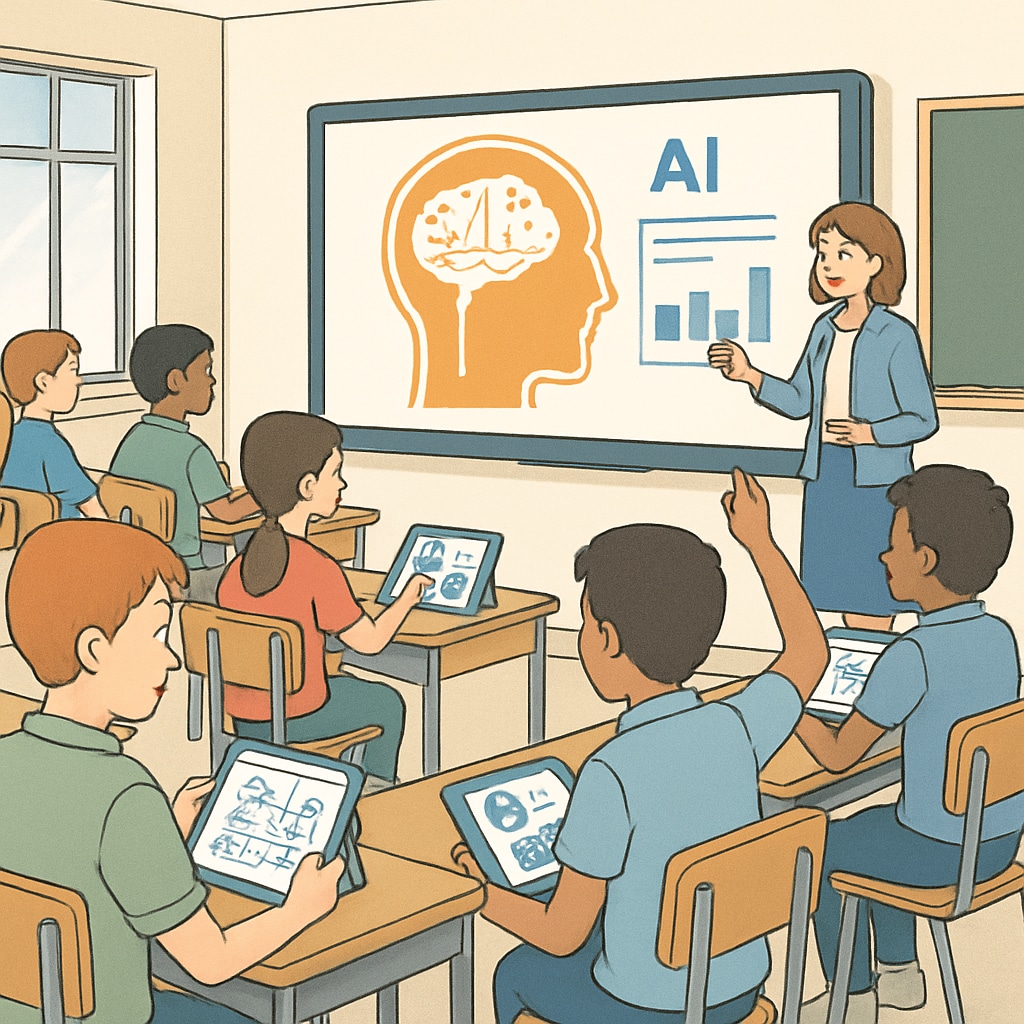Artificial intelligence (AI) is revolutionizing the education industry, bringing both opportunities and challenges for educators. As AI technologies become increasingly integrated into classrooms, the profession of teaching is undergoing a significant reevaluation. This article explores how AI impacts teachers’ professional value, their roles in education, and potential salary-related challenges. By understanding the changing landscape, educators can better prepare for the future while maintaining their significance in an AI-driven world.
How AI Is Transforming the Role of Teachers
AI is reshaping traditional teaching methods through tools such as personalized learning platforms, automated grading systems, and virtual tutors. These technologies reduce the need for repetitive tasks, allowing teachers to focus on creative and emotional aspects of education. However, this shift also raises questions about the evolving role of educators.
- Personalized Learning: AI can analyze student data to create tailored learning experiences, reducing the reliance on one-size-fits-all approaches.
- Automated Administrative Tasks: Grading assignments and managing student records can now be handled by AI, freeing up teachers’ time but potentially diminishing the demand for human intervention.
- Virtual Tutors: AI-powered tutors can offer students instant assistance, potentially decreasing the need for one-on-one teacher interactions.
While these changes can enhance education, they also challenge educators to redefine their roles. Teachers must emphasize skills that AI cannot replicate, such as emotional intelligence, creativity, and ethical guidance.

Professional Value Reevaluation in the AI Era
As AI takes over routine tasks, the professional value of teachers is being redefined. Educators are now expected to possess advanced technical skills and adapt to innovative teaching models. This reevaluation can lead to both positive and negative outcomes:
- Opportunities for Growth: Teachers can leverage AI to become more effective and focus on mentoring and leadership roles.
- Risks of Devaluation: Over-reliance on AI might lead to perceptions that certain aspects of teaching can be automated, potentially reducing the perceived importance of educators.
In addition, schools and institutions must recognize the unique contributions teachers make, beyond what technology can achieve. Skills such as empathy, critical thinking, and interpersonal communication remain irreplaceable.

Salary Challenges and Financial Implications
With the integration of AI, salary dynamics for educators may also shift. Some potential challenges include:
- Budget Redistribution: Schools may allocate resources to technology investments rather than increasing teacher salaries.
- Variable Demand for Educators: As AI takes over certain tasks, the demand for teachers in specific roles might decrease, impacting job security and income levels.
- Need for Specialized Skills: Teachers with expertise in AI and technology integration may command higher salaries, while others risk stagnation.
To address these challenges, educators should focus on continuous professional development, acquiring skills that align with technological advancements. Governments and institutions must also ensure fair compensation policies that reflect the evolving roles of teachers in the AI era.
Readability guidance: Short paragraphs and clear lists are used to summarize key points. Overuse of passive voice and excessively long sentences is avoided. Transition words such as “however” and “as a result” ensure smooth flow between ideas.


